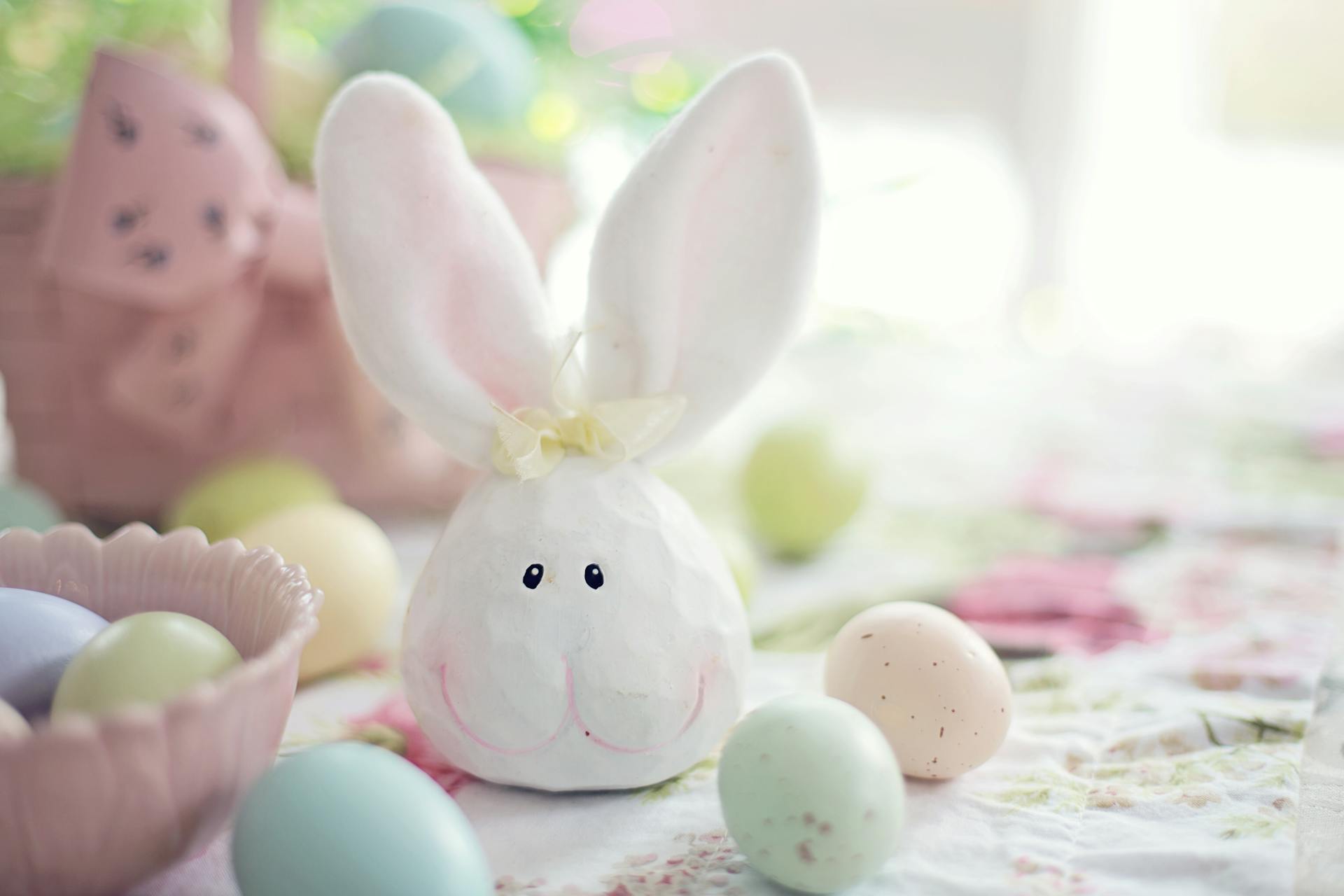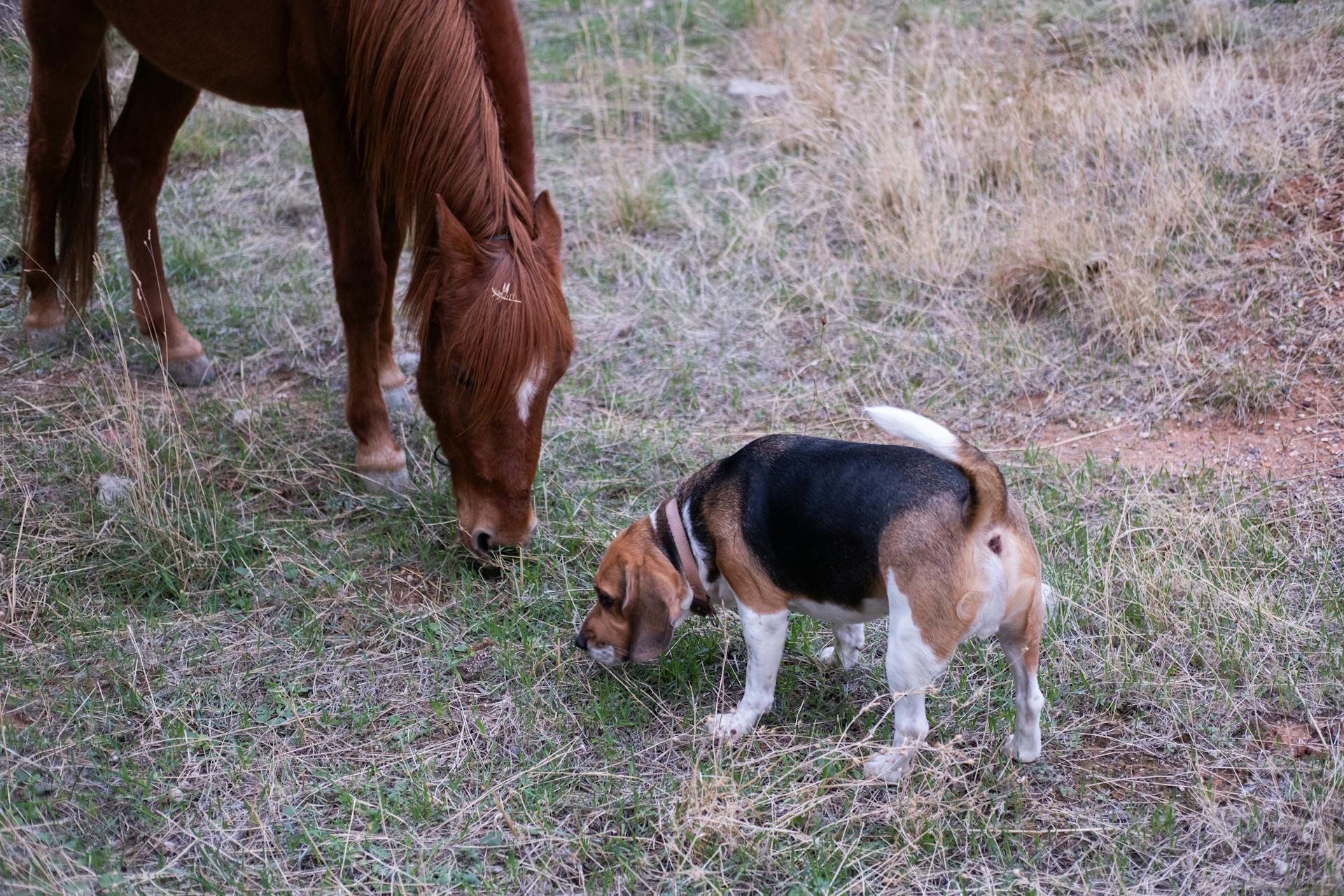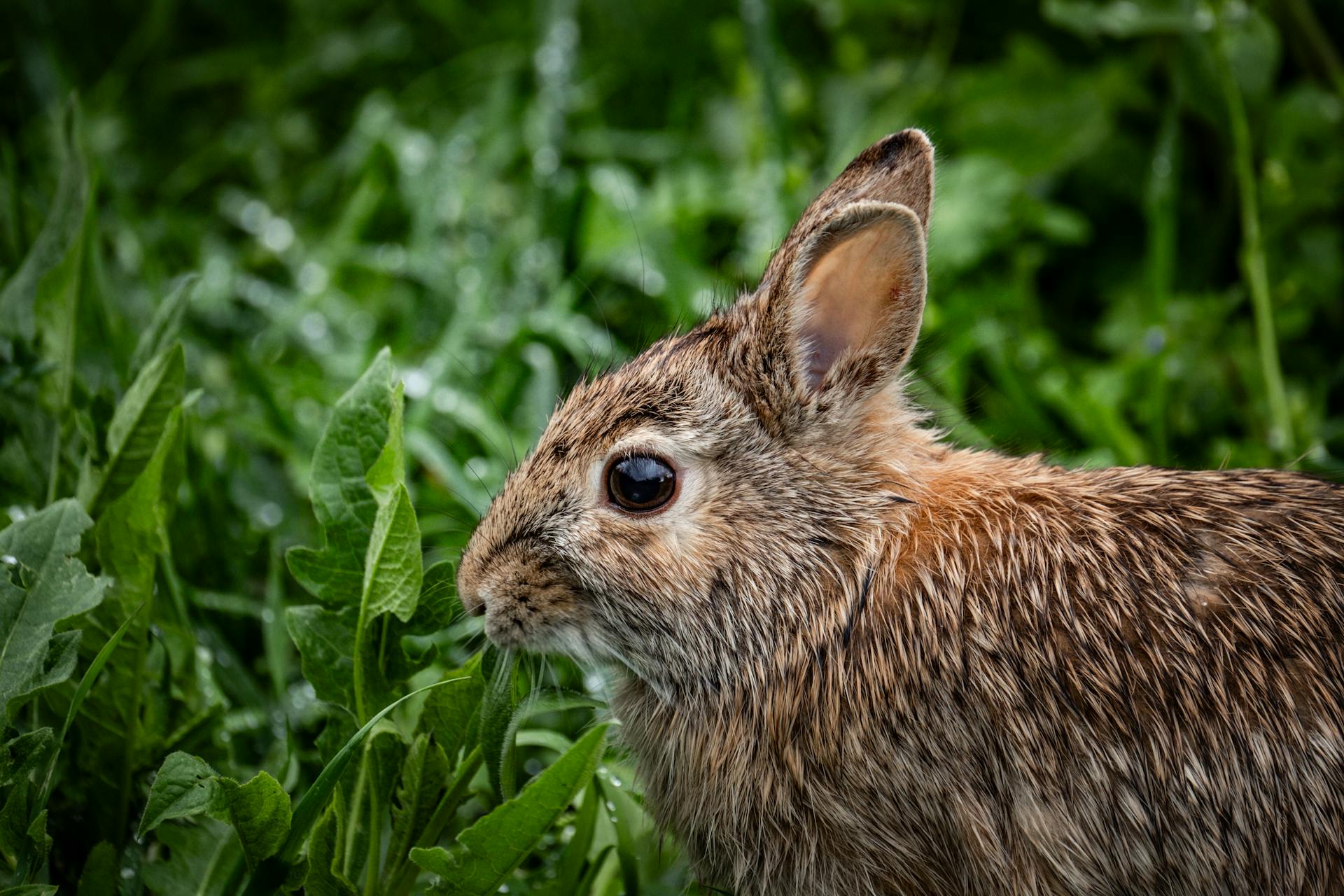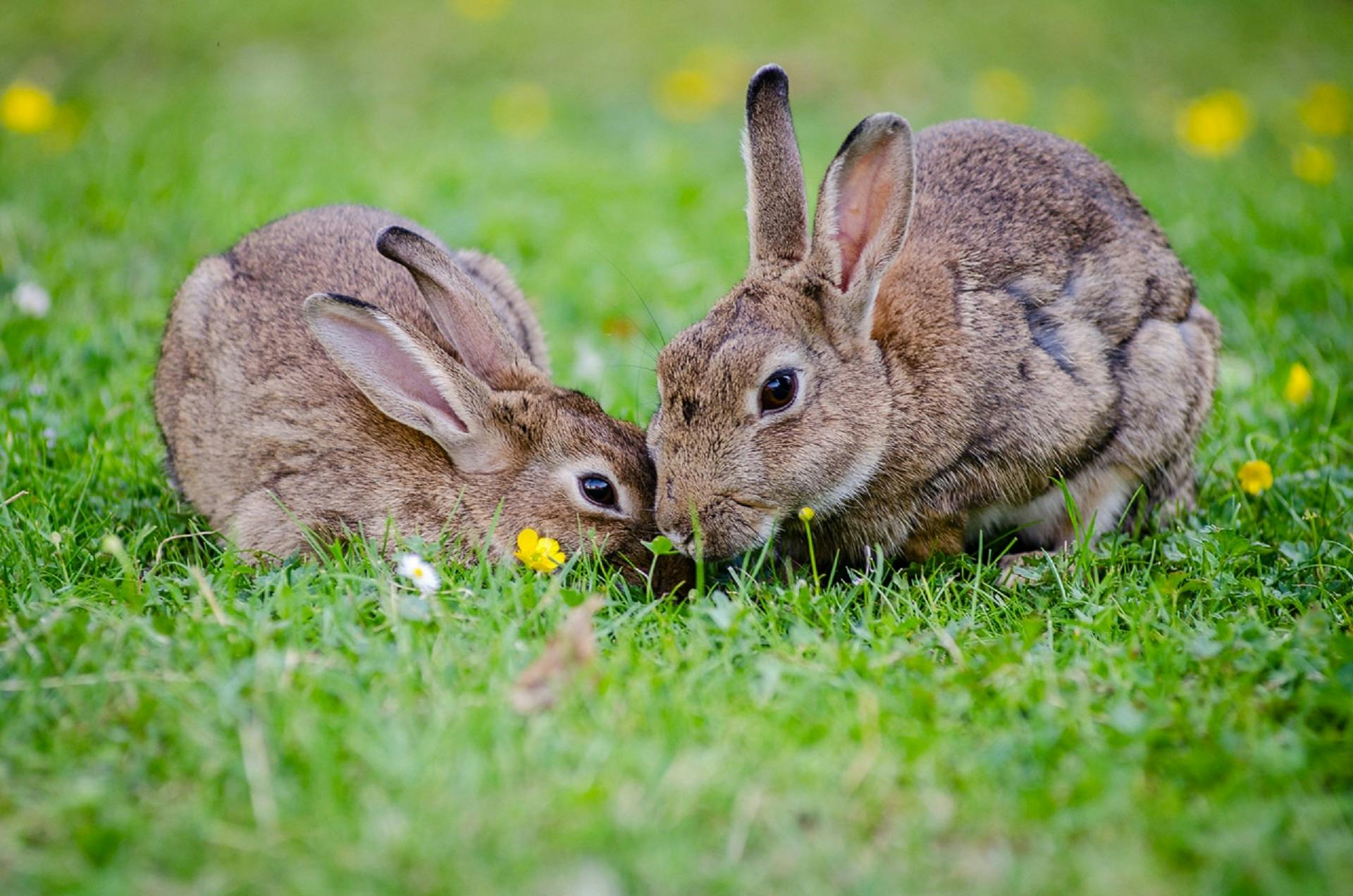
There are a few reasons why your rabbit may be twitching. It could be suffering from a neurological disorder, such as a seizure disorder or an ear infection. Alternatively, it could be experiencing pain from arthritis or another type of health issue. Finally, your rabbit may simply be tense or excited. If your rabbit is twitching frequently, it is important to consult with a veterinarian to rule out any serious medical conditions.
What could be causing my rabbit to twitch?
A possible cause for your rabbit's twitching could be a condition called myoclonus, which is characterized by involuntary muscle spasms. Myoclonus can be caused by a variety of things, including neurological disorders, metabolic disorders, drugs, toxins, and infections. If your rabbit is displaying other symptoms in addition to the twitching, such as seizures, weakness, or paralysis, then a more serious condition may be the underlying cause. If your rabbit is otherwise healthy and the twitching is the only symptom, then it is likely that the cause is less serious. There are many potential causes of myoclonus, so it is important to work with your veterinarian to determine the underlying cause in your rabbit's case. Treatment of myoclonus will depend on the underlying cause, and may include medication, dietary changes, and/or physical therapy.
Broaden your view: How to Clean Your Rabbit's Ears?
Is there anything I can do to stop my rabbit from twitching?
There are many possible causes of your rabbit's twitching, so it is important to consult with your veterinarian to rule out any medical conditions. If your rabbit is healthy, there are a few things you can do to help stop the twitching.
First, try to identify any possible triggers and remove them from your rabbit's environment. Common triggers include loud noises, sudden movements, and bright lights. If your rabbit seems to be twitching in response to a particular stimulus, try to avoid that stimulus if possible.
Second, provide your rabbit with a calm and quiet environment. This means creating a space where there are no loud noises or bright lights and where your rabbit can feel safe and secure. If your rabbit has a favorite hiding spot, make sure to provide access to it.
Third, try to reduce stress in your rabbit's environment. This can be done by providing plenty of hiding spots, keeping the environment clean and clutter-free, and providing ample enrichment. Enrichment includes things like toys, chew toys, and fresh vegetables.
Fourth, make sure your rabbit is getting enough exercise. A healthy diet and exercise are important for overall health and can help reduce stress.
Finally, keep in mind that twitching is a normal behavior for rabbits. If your rabbit is healthy and is not exhibiting any other abnormal behaviors, there is likely no cause for concern. However, if you are concerned about your rabbit's twitching, please consult with your veterinarian.
What should I do if my rabbit starts twitching?
If you notice your rabbit twitching, it is important to take note of any other symptoms and consult your veterinarian. While twitching is not always an indication of a serious health problem, it can be a sign of a neurological disorder or other medical condition. If your rabbit is twitching and also exhibiting other symptoms, such as lethargy, lack of appetite, or difficulty moving, it is important to have them seen by a veterinarian as soon as possible.
How can I tell if my rabbit is in pain when it twitches?
There are many possible causes of your rabbit twitching, and it can be difficult to determine if they are in pain. If your rabbit is showing other signs of pain, such as decreased appetite, lethargy, or gritting their teeth, then it is likely that the twitching is also due to pain. However, if your rabbit is not displaying any other signs of discomfort, the twitching could be caused by something else, such as a muscle spasm or neurological disorder. A visit to the veterinarian is always recommended if you are concerned about your rabbit's health.
Why is my rabbit's twitching getting worse?
If your rabbit's twitching is getting worse, it may be a sign of an underlying health condition. Some potential causes of twitching include:
1. Pain: If your rabbit is in pain, they may twitch as a way of trying to relieve the discomfort. This is often seen in rabbits who have arthritis or other painful conditions.
2. Anxiety: If your rabbit is anxious or stressed, they may start to twitch more frequently. This is a way for them to release some of the built-up tension.
3. Neurological problems: Twitching can be a sign of neurological problems, such as a seizure disorder. If your rabbit's twitching is accompanied by other signs of neurological problems (e.g., head tilt, circling, stumbling), it is important to take them to the vet for further evaluation.
4. Muscle weakness: If your rabbit is weak, they may start to twitch more frequently. This is often seen in rabbits who are elderly or have a chronic illness.
If you are concerned about your rabbit's twitching, it is important to take them to the vet for further evaluation. The vet will be able to determine if there is an underlying health condition causing the twitching or if it is just a normal behaviour for your rabbit.
For another approach, see: Horses Twitch
What are the possible consequences of my rabbit's twitching?
There are a few possible consequences of my rabbit's twitching. It is possible that the rabbit is having a seizure, and if this is the case, it is important to take the rabbit to the vet immediately. Another possibility is that the rabbit is cold and is trying to generate warmth by twitching. This is not a medical emergency, but it is a good idea to provide the rabbit with a warm place to stay. Finally, it is possible that the rabbit is simply uncomfortable and is trying to relieve the discomfort by twitching. This is not a medical emergency, but it is important to try to figure out what is causing the discomfort and to correct the problem.
You might enjoy: Why Does My Rabbit Not Let Me Pick Him Up?
Is there a cure for my rabbit's twitching?
Rabbits are known to twitch their noses when they are trying to figure something out or when they are concentration. However, if your rabbit's twitching is excessive or if it is accompanied by other strange behaviors, it could be a sign of a medical condition. If you are concerned about your rabbit's twitching, take them to see a veterinarian.
There are a number of potential causes of twitching in rabbits. One is dental problems. If a rabbit's teeth are not properly aligned, they may experience pain when they eat. This can lead to an imbalance in their body and cause the rabbit to twitch their nose.
Another potential cause of twitching is an ear infection. Ear infections are common in rabbits and can cause them a great deal of discomfort. If your rabbit is twitching their nose and scratching their ears, they may have an ear infection.
Finally, rabbits may twitch their noses when they are stressed or anxious. If you have recently introduced a new rabbit to your home, or if there has been a change in your rabbit's routine, this could be the cause of their twitching.
If your rabbit is twitching their nose excessively, it is important to take them to see a veterinarian. This is especially true if the twitching is accompanied by other strange behaviors. The veterinarian will be able to determine the cause of the twitching and recommend the best course of treatment.
Here's an interesting read: When to Take Your Rabbit to the Vet?
What is the prognosis for my rabbit's twitching?
The prognosis for your rabbit's twitching is generally good. However, there are a few things that could make the condition worse. If your rabbit is Twitching due to a medical condition, the underlying condition will need to be treated. This could include things like:
- Intestinal blockages - Inflammatory bowel disease - Kidney disease - Cancer
If your rabbit is twitching due to a neurological condition, the prognosis will depend on the cause of the condition. Treatments for neurological conditions can be quite expensive and may not be always successful.
Some possible causes of your rabbit's twitching include:
- Spinal cord compression - Encephalitis - Meningitis - Seizures
If your rabbit is twitching due to stress, the prognosis is generally good. You can help your rabbit by reducing their stressors. This could include:
- Providing them with more hiding places - Adding more enrichment to their environment - Changing their diet to a high fiber diet - Giving them supplements such as vitamin C
If your rabbit is twitching because of a muscle condition, the prognosis will depend on the severity of the condition. Treatments for muscle conditions can be expensive and may not always be successful.
Some possible causes of muscle twitching include:
- Muscular dystrophy - Myasthenia gravis - White muscle disease
As you can see, the prognosis for your rabbit's twitching will depend on the underlying cause. If the cause is a medical condition, the prognosis is generally good if the condition is treatable. If the cause is a neurological condition, the prognosis will depend on the severity of the condition. If the cause is stress, the prognosis is generally good. If the cause is a muscle condition, the prognosis will depend on the severity of the condition.
For more insights, see: What Shampoo Is Good for Rabbits?
Frequently Asked Questions
Why is my rabbit’s nose vibrating?
There are a few reasons why a rabbit’s nose might be vibrating. Some of the most common reasons include: 1) Fear: When your rabbit is scared, its nose will quickly vibrate in an attempt to communicate that it is uncomfortable. This may also happen when your rabbit is trying to escape from something frightening or when it's exploring its surroundings. 2) Anxiety: Rabbits can also show signs of anxiety by vibrating their noses occasionally. This may be due to a general feeling of unease or fear, or it could be caused by a specific situation or object. 3) Restlessness: If your rabbit is feeling really restless, its nose may start vibrating as a way to keep itself entertained and distraction free.
How do you get a rabbit to stop chewing on things?
If the item that the rabbit is chewing is damaged in any way, training may be necessary. Cut up a small piece of the item and give it to the rabbit as if they are getting a treat. Once they are attracted to the bait and eat it, take away the bait and replace it with an untreated object. Over time, try moving the object farther away so that the rabbit has to work harder to get to it. If this technique does not work, another deterrent such as water mister spraying or shaking a jar filled with coins can be used.
How to get your rabbits to stop fighting?
The best way to get your rabbits to stop fighting is to figure out the reason why they are fighting. If you can find the root of the problem, you can start to address it and hopefully prevent future episodes. Here are a few ways to try and get your rabbits to stop fighting: 1. Get them neutered – One of the most common reasons that rabbits fight is due to hormonal fluctuations. If one of your rabbits is not neutered, their hormones will cause them to become aggressive towards each other. Getting one or both of them neutered will help to alleviate this issue. 2. Separate them into different cages – Another common reason that rabbits fight is because they are confined in small spaces. If you can separate them into different cages, they will have more space to move around and won't be as tempted to fight with each other. 3. Set boundaries – One way to prevent fights from happening in the first place is by setting clear boundaries for
What to do if your rabbit is scared of You?
If your rabbit is frightened of you and has a secure enclosure for safety, there isn't always much you can do. Many rabbits are understandably scared when first introduced to humans, so patience and positive reinforcement may help him get over his fear. If your rabbit cannot be calmed with gentle care and management, then professional assistance may be needed.
How do I Stop my Rabbit from chewing my house?
A bunny's natural instinct is to chew. This behavior is usually not a problem, but if your bunny is chewing excessively or damaging your property, you may want to try some tricks to stop him.
Sources
- https://historycooperative.org/mason-dixon-line/
- https://www.xfire.com/news/
- https://www.eonline.com/videos
- https://www.gale.com/databases/questia
- https://chaturbate.com/female-cams/
- https://www.ppic.org/publication/ppic-statewide-survey-californians-and-their-government-october-2022/
- https://www.youtube.com/watch
- https://www.goodreads.com/book/show/25526296-every-heart-a-doorway
Featured Images: pexels.com


